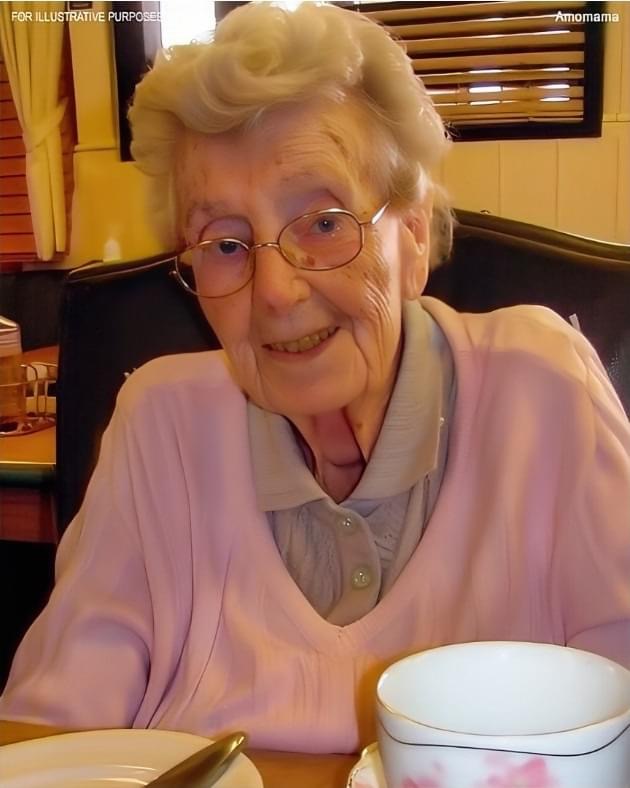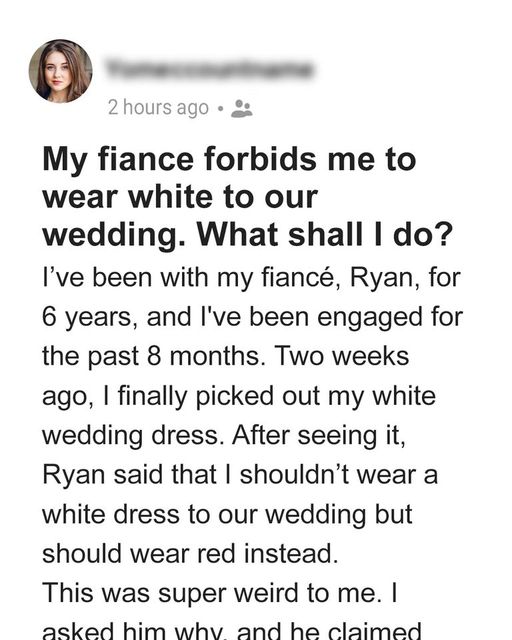I Was Kicked out of the Restaurant Because of My Age and Outfit – Days Later, I Returned for Payback
At 82, Everly was told she was “too old” and dressed “inappropriately” for a trendy restaurant. Her response? A viral Facebook post that sparked outrage and demanded change.
My name is Everly, and at 82, I haven’t lost my love for trying new things. It was a bright Thursday morning when my daughter, Nancy, surprised me at my little garden shop. Her visit was unexpected, and her suggestion even more so. “Mom, let’s try that new restaurant downtown,” she said, her eyes sparkling with the thrill of sharing something new with me.
We were both dressed simply; I wore my usual floral blouse and khaki pants—nothing fancy but clean and comfortable. Nancy was in jeans and a T-shirt. To us, it was not how we dressed but the joy of spending time together that mattered.
We chatted excitedly about the restaurant as we drove, eager to make a new memory together. Little did we know, our simple outing was about to take an unexpected turn.
As Nancy and I walked into the restaurant, a wave of contemporary music and chattering greeted us. The atmosphere was vibrant, filled with people chatting over their meals. We found ourselves surrounded by a younger crowd, stylishly dressed, which made our simple attire stand out. We didn’t mind, though; we were there for the experience and the food.

Nancy and Everly make their way to the restaurant
We had barely taken a few steps inside when I noticed the host’s eyes flicker over us. His smile faltered for a split second before he regained his composure. He led us to a table by the window—a perfect spot to enjoy the bustling street view.
No sooner had we settled in than a young waiter approached. His look was polite at first, but as he took in our appearance, his demeanor changed. “I’m sorry,” he began, his tone less than apologetic, “but this place might not be suitable for you.” His words hung in the air, sharp and unwelcome.
“You seem to be too old for our usual clientele,” he continued, “and your attire really isn’t appropriate for the ambiance we aim for here.” Nancy’s face turned red with shock and anger. I felt a sting in my heart—judged and dismissed, not for who I was, but how I looked and my age.
The waiter didn’t stop there. “We are sorry to say this, but you should leave our restaurant so as not to spoil the appetite of our guests,” he added harshly. Before we could even respond, he gestured towards the door. Two burly bodyguards approached, their presence reinforcing his words.
The humiliation was immediate and deep. I looked around, seeing the eyes of other patrons on us, some curious, others indifferent. Nancy grabbed my hand, squeezing it tight. We stood up, quietly leaving, the waiter’s piercing words echoing in our minds.
My heart was heavy, not just with embarrassment but with a profound sadness at being judged so harshly in a place where we had hoped to find joy.
Nancy, still seething with anger, took out her phone as we stepped outside. She quickly snapped photos of the bodyguards who had escorted us out. “We need to share this, Mom. People should know how they’re treating others,” she said, her resolve firm.
Everly is escorted from the restaurant
That evening, seated at her kitchen table, we uploaded the photos to Facebook. Nancy detailed our ordeal, focusing on how we were unfairly judged based solely on age and appearance. She tagged the restaurant, encouraging her friends to amplify our story.
The post caught fire overnight. By the next morning, it had been shared thousands of times. Comments flooded in, ranging from shock and empathy to outrage. Many recounted their own experiences with discrimination, highlighting a troubling pattern of ageism and superficial judgments. The restaurant’s online ratings nosedived as people left reviews and expressed their disapproval.
In the midst of the viral uproar, Mr. Thompson, the restaurant owner, reached out to me directly. He was genuinely shocked and apologetic about what had happened. “Mrs. Everly, I am terribly sorry to hear about this. I had no idea,” he confessed over the phone, his tone filled with remorse. “You see, that young waiter was my son.”
He explained that he had been away on business and had entrusted the restaurant to his son’s care. “I would like to invite you back to our restaurant for a complimentary meal and to offer a personal apology,” he offered sincerely.
I hesitated but appreciated his forthrightness. “Mr. Thompson, I’m glad you’re addressing this, but it’s not just about a meal. It’s about how people are treated,” I responded, needing him to understand the gravity of the incident.Mr. Thompson agreed wholeheartedly. “Absolutely, Mrs. Everly. I’ve had a serious talk with my son. He’s here now and would like to apologize to you as well. He needs to learn the importance of respect and dignity for all patrons, regardless of their age or how they dress.
“I’ve made it clear that he will not inherit anything from me until he fully embraces these values,” he explained. The tone of a concerned father was evident in his voice. This situation had ignited much-needed discussions about the principles of his business.
The conversation with Mr. Thompson was promising. It showed a willingness to listen and to make amends, and a recognition that real change was necessary. As we ended the call, I felt a mix of emotions—validated by his response yet still reflective on the broader issues of ageism that had led to this moment.
A week after the incident, I stood before my mirror, smoothing down the fabric of my best silk dress. I had chosen it carefully, a deep blue that brought out the sparkle in my eyes.
I was determined to return to the restaurant not as a victim, but as a dignified woman deserving of respect. My hands were steady, but my heart fluttered with a mix of nerves and resolve.
As I entered the restaurant, the chimes of the door echoed slightly louder than usual in my ears. The interior was just as chic and bustling as before, but this time, the air felt different—charged with my purpose. I was met at the entrance by Mr. Thompson, who greeted me with a warm, albeit somewhat apprehensive, smile.
“We are so grateful you gave us another chance, Mrs. Everly,” he said, guiding me to a beautifully set table by the window. As I took my seat, I noticed the waiter—Mr. Thompson’s son—approaching. His steps were hesitant; his usual confidence replaced by a visible unease. Recognizing me, his face turned pale, a stark contrast to the brashness of our last encounter.
“Mrs. Everly, I… I am deeply sorry for how I treated you last time. It was disrespectful and unkind,” he stammered, his eyes not quite meeting mine. “I’ve had a lot of time to think about what happened and I’m truly sorry.”
His apology felt sincere, but it was Mr. Thompson’s next words that showed the depth of the change occurring within their establishment. “My son and I have had several discussions since that day. I’ve made it clear that our values as a family and a business demand respect for everyone, regardless of age or appearance. He will not be part of this business’s future if he does not embody those values.”
Satisfied that the apology was not just for show, I allowed myself to relax and enjoy the meal. A symphony of flavors seemed to celebrate not just the food but the reconciliation. The meal was delicious, but more importantly, it symbolized a restoration of dignity and a step forward in understanding.
After returning home, I updated my Facebook followers with a new post. I shared pictures of the beautifully plated dishes and wrote about the genuine apologies and the heartfelt discussions. “Change is possible,” I wrote, “when we stand up against injustice and when those in the wrong are willing to listen and learn.”
Reflecting on the entire experience, I realized the power of a single voice when amplified by the reach of social media. It wasn’t just about a meal or an apology.
It was about affirming that everyone deserves respect, no matter their age or how they choose to present themselves. This ordeal had shown me the strength of my own voice and the importance of standing firm in one’s values.After years of being bullied in high school, Lily finally gets to confront her bully, Karen. Karen walks into Lily’s restaurant and falls into her petty high school-self, but when she realizes that Lily has successfully navigated her lisp and stutter, and owns a successful business — Karen flees.
This work is inspired by real events and people, but it has been fictionalized for creative purposes. Names, characters, and details have been changed to protect privacy and enhance the narrative. Any resemblance to actual persons, living or dead, or actual events is purely coincidental and not intended by the author.
The author and publisher make no claims to the accuracy of events or the portrayal of characters and are not liable for any misinterpretation. This story is provided “as is,” and any opinions expressed are those of the characters and do not reflect the views of the author or publisher.




